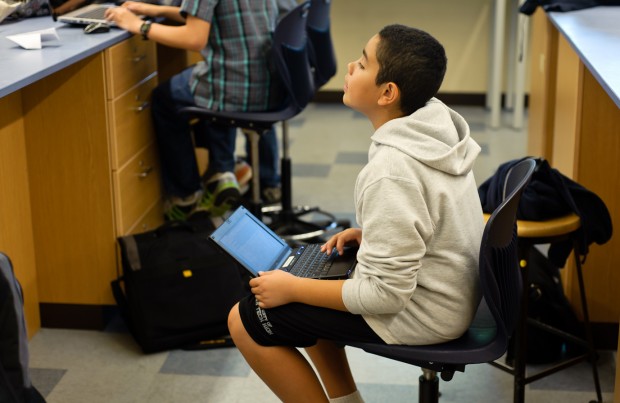
Lenny Gonzales
What's the key to effective learning? One intriguing body of research suggests a rather gnomic answer: It’s not just what you know. It’s what you know about what you know.
To put it in more straightforward terms, anytime a student learns, he or she has to bring in two kinds of prior knowledge: knowledge about the subject at hand (say, mathematics or history) and knowledge about how learning works. Parents and educators are pretty good at imparting the first kind of knowledge. We’re comfortable talking about concrete information: names, dates, numbers, facts. But the guidance we offer on the act of learning itself—the “metacognitive” aspects of learning—is more hit-or-miss, and it shows.
Research has found that students vary widely in what they know about how to learn, according to a team of educational researchers from Australia writing in this month’s issue of the journal Instructional Science. Most striking, low-achieving students show “substantial deficits” in their awareness of the cognitive and metacognitive strategies that lead to effective learning—suggesting that these students’ struggles may be due in part to a gap in their knowledge about how learning works.
Teaching students good learning strategies would ensure that they know how to acquire new knowledge, which leads to improved learning outcomes, writes lead author Helen Askell-Williams of Flinders University in Adelaide, Australia. And studies bear this out. Askell-Williams cites as one example a recent finding by PISA, the Programme for International Student Assessment, which administers academic proficiency tests to students around the globe, and place American students in the mediocre middle. “Students who use appropriate strategies to understand and remember what they read, such as underlining important parts of the texts or discussing what they read with other people, perform at least 73 points higher in the PISA assessment—that is, one full proficiency level or nearly two full school years—than students who use these strategies the least,” the PISA report reads.
In their own study, Askell-Williams and her coauthors took as their subjects 1,388 Australian high school students. They first administered an assessment to find out how much the students knew about cognitive and metacognitive learning strategies—and found that their familiarity with these tactics was “less than optimal.”

